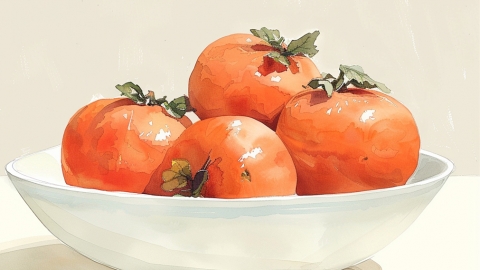Is persimmon a hot-natured or cold-natured food?
Generally speaking, in traditional Chinese medicine theory, persimmons are categorized as a cooling fruit, possessing effects such as clearing heat, promoting body fluid production, moistening the lungs, and relieving cough. A detailed analysis is as follows:

Persimmons are cooling in nature and have functions of clearing internal heat, stimulating saliva production, moistening the lungs, and alleviating coughing. They can also help relieve heat-related symptoms like dry cough, sore throat, and mouth ulcers. During dry weather or when there is internal heat, moderate consumption of ripe persimmons can help replenish bodily fluids, moisturize the lungs, and alleviate physical discomfort. Additionally, persimmons have a certain bowel-moistening and laxative effect, making them suitable for individuals experiencing difficult bowel movements due to dryness and heat. However, intake should be controlled to avoid potential discomfort due to their cooling properties.
When consuming persimmons daily, attention should be paid to the following: individuals with weak spleen and stomach function or those prone to diarrhea should eat fewer or avoid them altogether, as their cooling nature may exacerbate symptoms such as abdominal distension and pain. They should not be consumed in large quantities together with other cold-natured foods such as crabs and shrimp, to avoid excessive cooling effects on the gastrointestinal system. Eating persimmons on an empty stomach should also be avoided, as the tannic acid in persimmons may easily combine with stomach acid under such conditions, possibly forming indigestible substances. Each serving should be limited to one fruit or less, and only fully ripe persimmons should be consumed. Unripe persimmons contain high levels of tannic acid, which can not only cause a bitter taste but may also irritate the gastrointestinal tract. If stomach discomfort occurs after consumption, intake should be stopped immediately and symptoms monitored.







